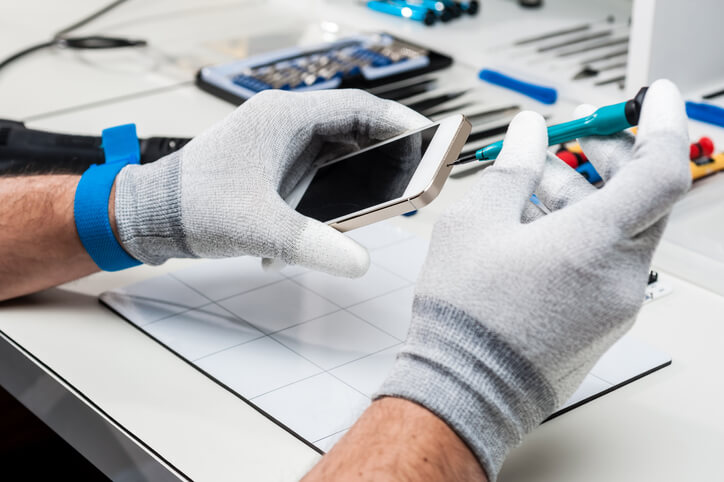
The psychology of warranties is an interesting topic. You are probably wondering about the importance of a warranty for your next purchase and whether you should even buy this product with or without a warranty to begin with. Wouldn’t it be better if there was more information available on how people respond to these types of decisions?
Why are people so obsessed with warranties? Is it really about the product itself, or is there something else going on? What do you think? Let’s discuss.
What Is a Warranty?
By definition, a warranty is a guarantee or promise given by the seller of goods that the goods are free from material defects and will function properly for a specific period. A written statement must accompany the sale of many consumer items, outlining the guarantor’s responsibility and identifying what parts and services are covered under the terms of the warranty.
Some experts believe that Thomas Jefferson created the first true warranty in 1790. The warranty acted as assurance that any goods with defects or faults would be rectified without charge. This became known as the implied warranty.
The next big step occurred when an Act of Congress stated that all boats were deemed to carry a ninety-day warranty on their hulls. The notice was printed into every shipping bill and charter party for American ships and had to include details such as the amount paid for the vessel, her name, date built, place of construction, and destination port.
Over time, this evolved into its current form whereby it is deemed that every contract for sale of personal property carries an implied warranty that the product will be fit for the purpose for which it is sold.
How Warranties Work

Traditionally, warranties were all-inclusive (extended or full refurbished) and intended to cover every part of an item’s life. However, as time has progressed, a distinction between express and implied warranty provisions has been established. In its purest form, there are three categories that need to be considered:
1. Express Warranties
These are the most common type of warranty provision and can be found in any contract whereby a business promises its customers certain goods or services that shall meet their expectations under normal use and conditions (technical performance warranty).
For example, if you scheduled a car repair with your local mechanic, he would give you an estimate on how much time it would take to complete each repair. Obviously, he is also promising that the car will meet your expectations during and after the work has been completed.
As you can see, these express warranties are not completely warranted by a business but are deemed to be so under normal circumstances because of the promises made on behalf of a company or individual for them to proceed with their request or sale.
For example, if you asked your local mechanic whether his car was safe enough to drive from A to B, he could still say yes without warranty because it’s not within his “duty of care” for him to do so. The implied contract is simply that he should be able to offer advice on how safely a client should proceed: one of the many implied warranties that can be found on every contract.
2. Implied Warranties

Unlike an express warranty, implied warranties are not directly promised to a consumer but are derived under case law and industry standards. For example, if I purchased a new television from an individual or website, he would usually test the product beforehand to ensure it works.
The implied warranty dictates that any reasonable person in his position would have done the same thing. You don’t expect him to sell you a faulty TV and then refuse to take responsibility for it. Therefore, there is no need for him to make any express warranty because the implied one is all-encompassing enough: he didn’t promise “this TV won’t work after x amount of time” but rather “this TV will work when you get it home.”
Implied Warranties vs Express Warranties
An express warranty is a promise or guarantee as to the quality or condition of the goods or services being sold. If the product breaks down after its initial use, it can be taken back and returned. An implied warranty, on the other hand, assumes that an item will work for its purposes until the customer actually discovers any faults with it: regardless of how long this period may be.
An example of this would be buying an antique table for your living room. Suddenly, one leg breaks within five years. You take it back to the seller who refuses to accept liability because you have exceeded the time limit of his express warranty. This example can be seen as a reasonable reflection of an implied warranty because an antique table would have been expected to last for at least another 5 years than its current age (even if this isn’t stated anywhere).
3. The Cavalier Warranty
The term “cavalier,” in legal terms, refers to the implied warranties given on behalf of individual sellers and businesses by consumers under common law. In other words, if I purchased a product from my local corner shop during rush hour with no prior knowledge of said goods or services, I would not expect him to offer me any express guarantees whatsoever. Instead, he will guarantee that all products sold are fit for their intended purpose but only if they are used as the buyer intends to use it under normal conditions.
This is what makes the cavalier warranty a little more troublesome than an express one: first, because it relies on trade standards (implied), which can vary depending on which country you’re in, and, second, because every consumer expects something different from their goods, with no means of knowing if these expectations will be met until after purchase (for example: purchasing a new computer).
However, once again, this doesn’t mean that consumers won’t feel protected by any implied warranties firms offer them but they are open to multiple interpretations and should never be taken for granted.
Overall, the basic idea of warranties is this: if you buy a refrigerator (or any other product for that matter), the manufacturer will stand behind it and cover any issues or problems that arise with the unit. Usually, they do so because they want to increase brand loyalty, profit margins, etc. But whatever their reasons, warranty-type items exist in every imaginable industry from automobiles to toothbrushes.
In fact, within the United States alone, consumers spend $31 billion on warranties each year. So clearly, there’s big money involved. As such, there are a lot of potential opportunities available to both consumer and business alike.
Psychological Theories That Influence Warranties

What makes this interesting is how certain psychological factors come into play when determining how much a customer is willing to pay in order to make a purchase.
1. Expected Utility Theory
All of this ties into the idea of expected utility theory, which states “the decision maker selects that action with the greatest expected utility.” Essentially, what this means is if an action can result in either positive or negative outcomes, and you weigh those two options against each other when making your choice (an assessment known as expected value), the more likely you are to choose the option with a higher expected value.
For example, if someone buys a warranty on their computer knowing that they will probably never have issues with it anyways but at worst they’ll end up paying $50 or less out-of-pocket for some repairs, then they’re essentially buying peace of mind (which is worth something). And since products don’t come with warranties by default, companies have to compete with one another to capture that market share.
As such, a company’s perceived reputation and brand awareness will be of utmost importance when it comes to selling their product, especially if that company is not associated with high-quality products (i.e., a budget brand).
If someone buys an item from Private Label Product X that has little recognition value regardless of the price they sell at and the unit breaks down after a week, there isn’t much they can do about it. They don’t even really know where the product came from!
As such, for warranty-type items, you’ll see higher quality generally speaking because those same customers will stick around longer as lifetime consumers, which means more profit for the company.
2. Cognitive Dissonance Theory
But what happens if a product is sold under an already-established brand that makes high-quality items like Apple? Well, it’s obvious that the customer would feel more satisfied knowing they have all of the support in place to rectify any problems with their new product, especially if the said product costs upward of $75 or more.
In fact, whether we like to admit it or not, most people will pay hundreds and even thousands of dollars for certain products as long as they trust the brand and know that anything can be fixed free of charge. This might be attributed to cognitive dissonance theory, which states “when expectations are not met, one tends to change attitudes or behavior so as to reduce the amount of dissonance [cognitive inconsistency] experienced.”
When the product’s quality is not in line with its price tag, customers will either change their attitudes toward it (i.e., “It must be worth less than I thought”) or change their behavior and return it to the store. The latter hurts both the buyer and seller equally because that customer was likely to make additional purchases from that vendor in the future.
In essence, a company will then increase profits by creating a positive experience for their consumers at the time of purchase instead of waiting until after they’ve already bought something before offering service.
Of course, you’ll definitely want to ask yourself if it’s really worthwhile to invest so much into a product only to have it eventually break down, especially when there are other products within your price range that offer similar quality and they also come with a warranty.
Not to mention, just because a product includes a warranty doesn’t necessarily mean it is worth buying. It could be indicative of inferior build quality or poor customer service. But for the most part, if you do your research and find out that an item has consistently received positive reviews then go ahead and pay the extra $5 or more. You may end up saving money in the long run!
In conclusion, although warranties will never completely eliminate all cognitive dissonance, they do provide customers with both perceived (and actual) peace of mind, which can ultimately encourage potential buyers to invest in pricier items. Since at least some subset of consumers are willing to buy products without warranties regardless of price, the market is now ripe for companies to increase their profit margins by offering a guarantee.
Overall, warranties are an effective marketing tool that depend on both consumer and producer behavior, resulting in a win-win scenario for all parties involved!